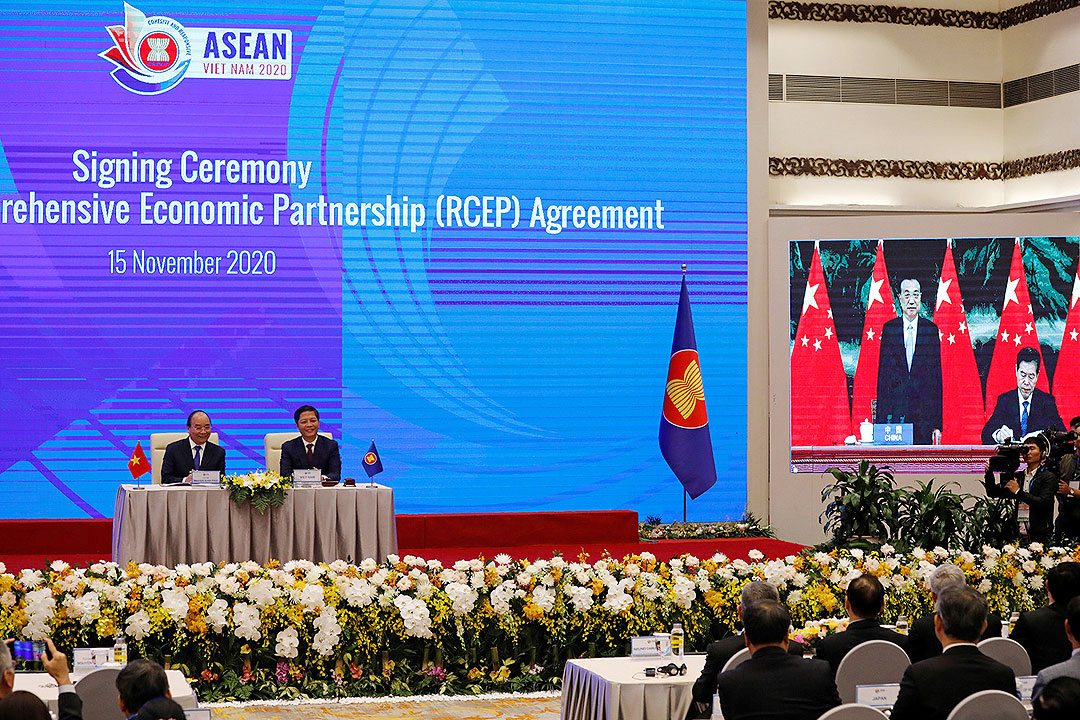THE DELAY in ratifying the Regional Comprehensive Economic Partnership (RCEP) treaty risks freezing the Philippines out of a massive market, exporters warned.
RCEP, which took effect on Jan. 1, is a free trade agreement among ASEAN countries, Australia, China, Japan, South Korea, and New Zealand. The Senate went into recess without ratifying RCEP before the year ended.
Sergio R. Ortiz-Luis, Jr., Philippine Exporters Confederation, Inc. (Philexport) president, said in a phone interview that the Philippine entry into the trading bloc will be delayed by a few months.
“The biggest argument is we will be shut out from the market. We will not be a priority. It is difficult to be shut out. That is the biggest worry,” Mr. Ortiz-Luis said.
“We hope that the delay will not take long. But I think it will delay the process for us by a few months,” he added.
RCEP is being opposed by the agriculture industry, which fears a surge in imports, lower prices, and the displacement of domestic producers.
Philexport supports ratification, deeming it beneficial to employment and livelihood.
Mr. Ortiz-Luis warned that any further delay in ratifying RCEP will reduce the Philippines’ share of regional trade.
“We will eventually notice that the Philippines will be left behind by those participating in RCEP,” Mr. Ortiz-Luis said.
Asked to comment on the ratification process, the chairman of the Senate Committee on Foreign Relations, Senator Aquilino L. Pimentel III, said many senators are requesting interpellations.
“We have to give them the chance to ask questions when session resumes this Jan. 17,” Mr. Pimentel said by phone message.
Trade Secretary Ramon M. Lopez said in a phone message that the impact of RCEP’s delayed ratification will be minimal if it is “a matter of few days or weeks.”
However, Mr. Lopez said further delay to join RCEP will negatively impact the economy.
“We will lose the recovery momentum. Our double-digit growth in foreign direct investment (FDI) and exports will definitely reverse as investors will easily shift to other RCEP participating countries. Jobs will be lost,” Mr. Lopez said.
Semiconductor and Electronics Industries in the Philippines Foundation, Inc. President Danilo C. Lachica said by phone message that the government needs to study why other ASEAN countries like Vietnam and Indonesia are taking in more FDI than the Philippines.
“That’s why regardless of RCEP, government needs to study why. We need an honest President who can restore our country’s credibility in international circles,” Mr. Lachica said.
The DTI has touted RCEP benefits such as cheaper manufacturing inputs, ease of transactions with free trade agreement partners, and increased competitiveness for Philippine industries. — Revin Mikhael D. Ochave
